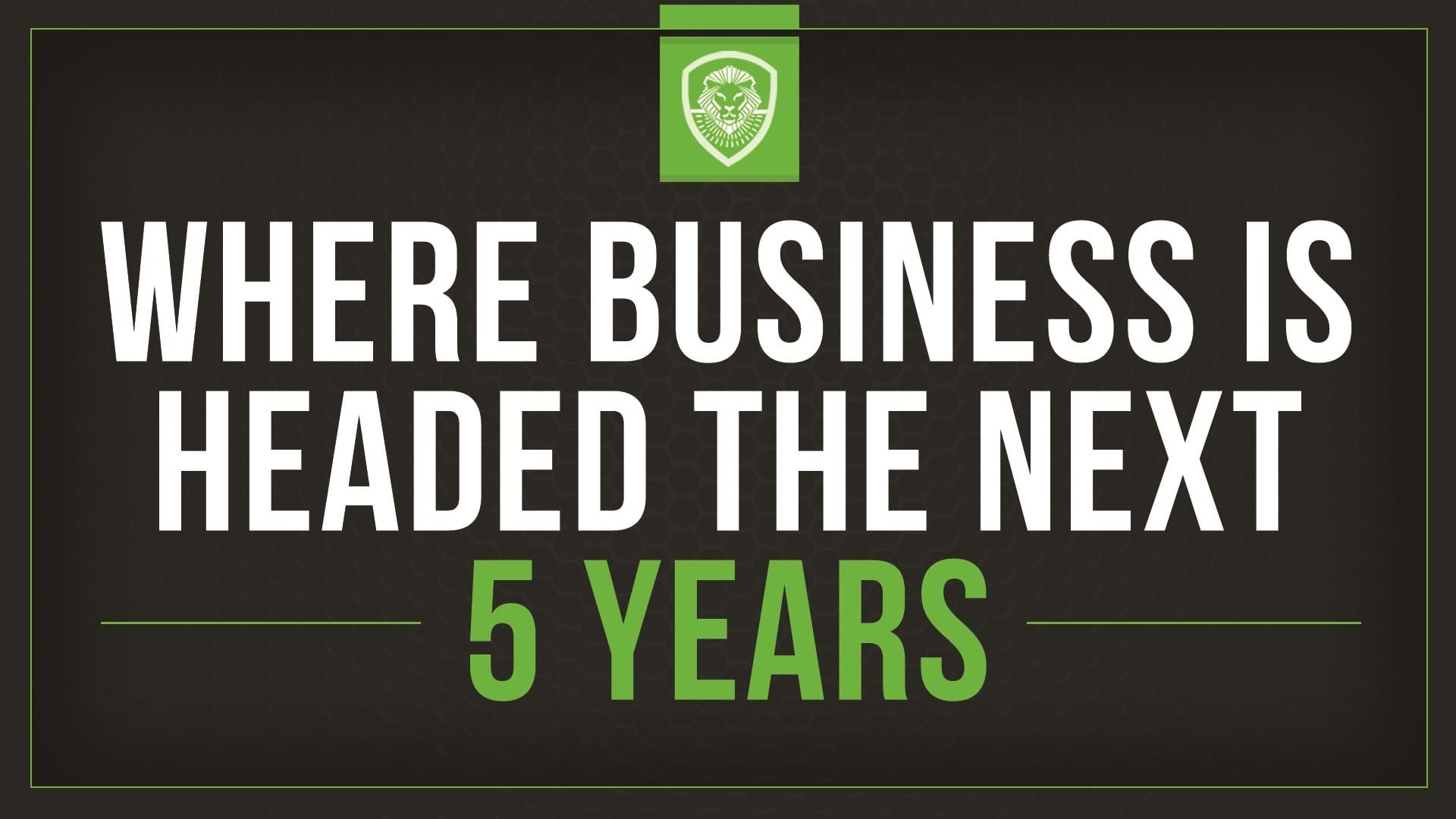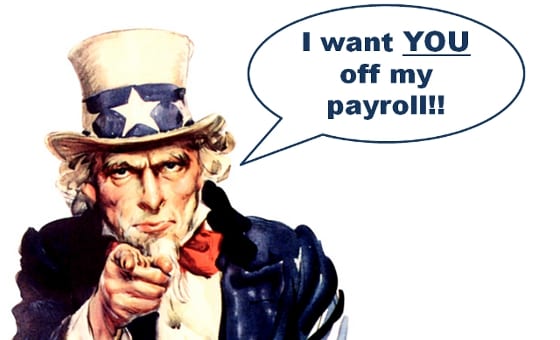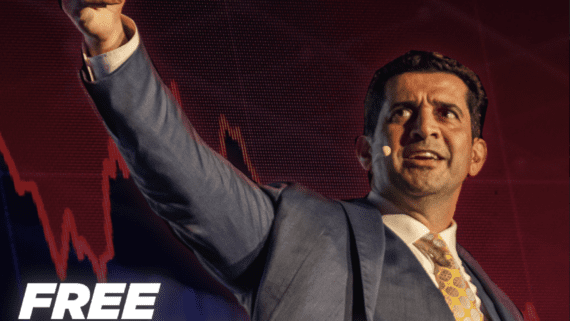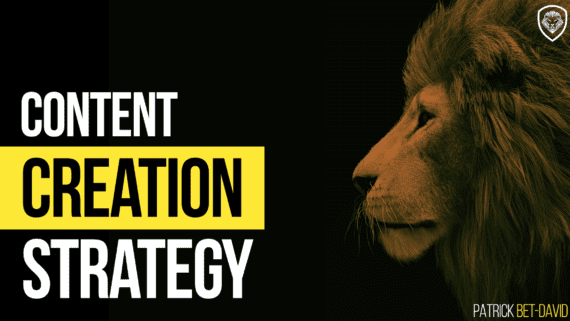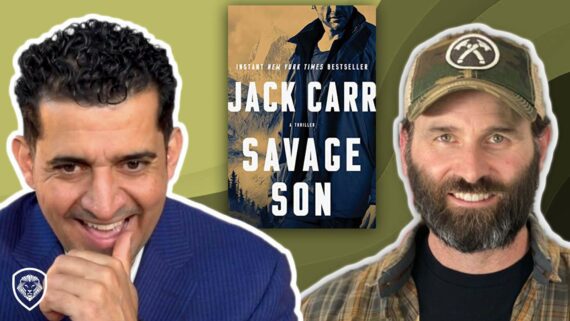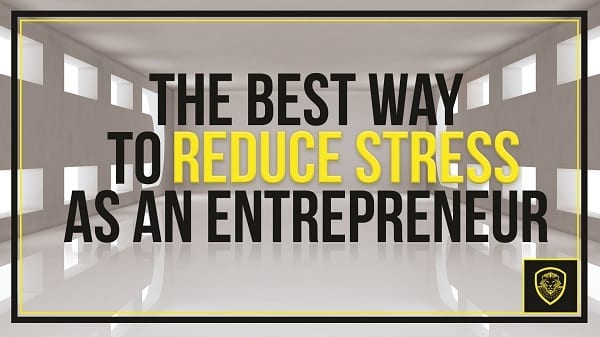
Does owning a business stress you out?
If so, I have a simple solution for reducing your stress as an entrepreneur.
[thrive_leads id=’7165′]
It starts with asking yourself a simple question.
Have you ever noticed how your reaction or business performance changes when the savings you have in the bank is extremely low?
Most likely you’re more anxious, stressed, and a little antsy about where your business is headed. Your confidence may even be a little low because you don’t know what’s going to take place and a big decision or situation in your business can have a devastating impact on you, all because of the low balance in your savings account.
In contrast, have you ever met an entrepreneur that walks tall and has a lot of confidence and wondered why they’re so calm?
That sense of calm usually occurs for one of two reasons. The first is they may simply have a high level of faith. Based on my experience, the second reason is they have a lot of savings in place. When entrepreneurs have a lot of savings, they stress a lot less about what can happen in their business.
An entrepreneur without savings feels like it’s the end of the world if they have an unexpected expense or if anticipated sales fall through. An entrepreneur with a healthy savings account is able to take those types of setbacks in stride.
So how should an entrepreneur look at savings? They are three types of savings that I recommend all entrepreneurs have in place.
Short-Term Savings
Short-term savings is the first step in reducing stress as an entrepreneur. I define short-term as less than 12 months. I’m a very big fan of having a lot of cash set aside. I recommend having a minimum of 12 months of cash set aside in your short-term savings account for anything that could happen. You never know when you may lose a big client or have some type of crisis in your business or personal life.
Mid-Term Savings
Mid-term savings is for expenses that will come up in the next one to 10 years. This type of savings can be in the form of a mutual fund or perhaps a 10-year investment property. With mid-term savings you need to think about expenses that will likely occur in the future. For example, if you have a 12-year-old child, they may be going to college in six years. You need to have mid-term savings set aside for that.
Or perhaps you want to buy a home in three years, and you need to start saving for a down payment. That savings is above and beyond what is in your short-term savings account.
Maybe you’d like to take a vacation to Tuscany, Italy in four years. If so, you need to start setting aside money for that now, so you can spend the money on it when the time comes without stressing about it.
Long-Term Savings
The next is long-term. Long-term savings is for expenses that will come up 10 years and beyond. If you have a six-year-old daughter now, and in your culture you’re expected to pay for the wedding, start putting money aside for it now so you’ll have it 20 or 25 years from now, when your daughter announces her engagement.
Retirement savings also needs to be a part of your long-term savings plan.
One of Three
From my experience, most people typically have one of these three types of savings taken care of. They may have retirement savings in place, but nothing in mid-term savings. Or they may have short term savings, but nothing in their mid-term savings or retirement accounts.
Savings Reduces Stress and Increases Confidence
The reason I wanted to share this with you is because several years ago I read an article that talked about how the amount of money we have in savings impacts our confidence. Believe it or not, your savings can impact the way you stand, walk, and the tone of your voice. It can impact your physical well-being and self-confidence.
If you, as an entrepreneur, don’t have savings, you’ll always be on the run. You’ll take the first client that comes along. You’ll be nervous about the slightest perception of a customer being unhappy because any refunds or other financial setbacks puts you into a state of emergency. If you don’t have savings, you’ll take abuse from a client that you feel like you can’t afford to fire.
However, when you have money in savings, you’ll make wiser, more profitable decisions because you’ll think more clearly, and base your decisions on the right thing to do rather than doing things out of fear.
When you’re worried about money, you can’t afford to think long term, and instead grasp at every little thing that brings in just enough money to survive. You can be kept so busy trying to survive that you never end up doing what matters the most to you in your business.
You may say that you can’t afford to save, but the ability to save has nothing to do with the size of your income. Many high-income people spend all they make, and then some.
Just Imagine
Imagine if you had $100,000 in a checking account right now, a couple hundred thousand dollars in your mid-term mutual funds, and $750,000 in your long-term retirement plan. How would you feel right now?
I’ve experienced both sides of this coin, and I remember how it feels to not have savings in place; it’s very stressful.
My Challenge to You
My challenge to you is to take out a sheet of paper and write down your short-term, mid-term, and long-term savings amounts and goals.
Then speak to your spouse or to someone who’s an expert and start implementing a plan to get your savings in place.
As you begin to save, not only will you see a difference in how excited you are as you see your savings grow, you’ll also have a sense of relief and calm, which will enable you to focus on the things that really matter in your business.

